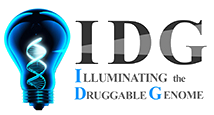Drug results: 14
| eugenol | A cinnamate derivative of the shikamate pathway found in CLOVE OIL and other PLANTS. |
|
| aminobutyric acid | The most common inhibitory neurotransmitter in the central nervous system. |
|
| quercetin | A flavonol widely distributed in plants. It is an antioxidant, like many other phenolic heterocyclic compounds. Glycosylated forms include RUTIN and quercetrin. |
|
| rutoside | A flavonol glycoside found in many plants, including BUCKWHEAT; TOBACCO; FORSYTHIA; HYDRANGEA; VIOLA, etc. It has been used therapeutically to decrease capillary fragility. |
|
| calcium gluconate | The calcium salt of gluconic acid. The compound has a variety of uses, including its use as a calcium replenisher in hypocalcemic states. | |
| calcium citrate | A colorless crystalline or white powdery organic, tricarboxylic acid occurring in plants, especially citrus fruits, and used as a flavoring agent, as an antioxidant in foods, and as a sequestrating agent. (McGraw-Hill Dictionary of Scientific and Technical Terms, 4th ed) | |
| coumarin | effective in reducing edema following crush & thermal injury; structure in Merck Index, 9th ed, #2547; Coumarin itself occurs in the Tonka bean |
|
| benzoic acid | A fungistatic compound that is widely used as a food preservative. It is conjugated to GLYCINE in the liver and excreted as hippuric acid. |
|
| calcium phosphate | refers to unspecified salt; see other calcium phosphates | |
| estrone | An aromatized C18 steroid with a 3-hydroxyl group and a 17-ketone, a major mammalian estrogen. It is converted from ANDROSTENEDIONE directly, or from TESTOSTERONE via ESTRADIOL. In humans, it is produced primarily by the cyclic ovaries, PLACENTA, and the ADIPOSE TISSUE of men and postmenopausal women. |
|
| menadione |
|
|
| histamine | An amine derived by enzymatic decarboxylation of HISTIDINE. It is a powerful stimulant of gastric secretion, a constrictor of bronchial smooth muscle, a vasodilator, and also a centrally acting neurotransmitter. |
|
| folic acid | A member of the vitamin B family that stimulates the hematopoietic system. It is present in the liver and kidney and is found in mushrooms, spinach, yeast, green leaves, and grasses (POACEAE). Folic acid is used in the treatment and prevention of folate deficiencies and megaloblastic anemia. |
|
| formaldehyde | A highly reactive aldehyde gas formed by oxidation or incomplete combustion of hydrocarbons. In solution, it has a wide range of uses: in the manufacture of resins and textiles, as a disinfectant, and as a laboratory fixative or preservative. Formaldehyde solution (formalin) is considered a hazardous compound, and its vapor toxic. (From Reynolds, Martindale The Extra Pharmacopoeia, 30th ed, p717) |
|



